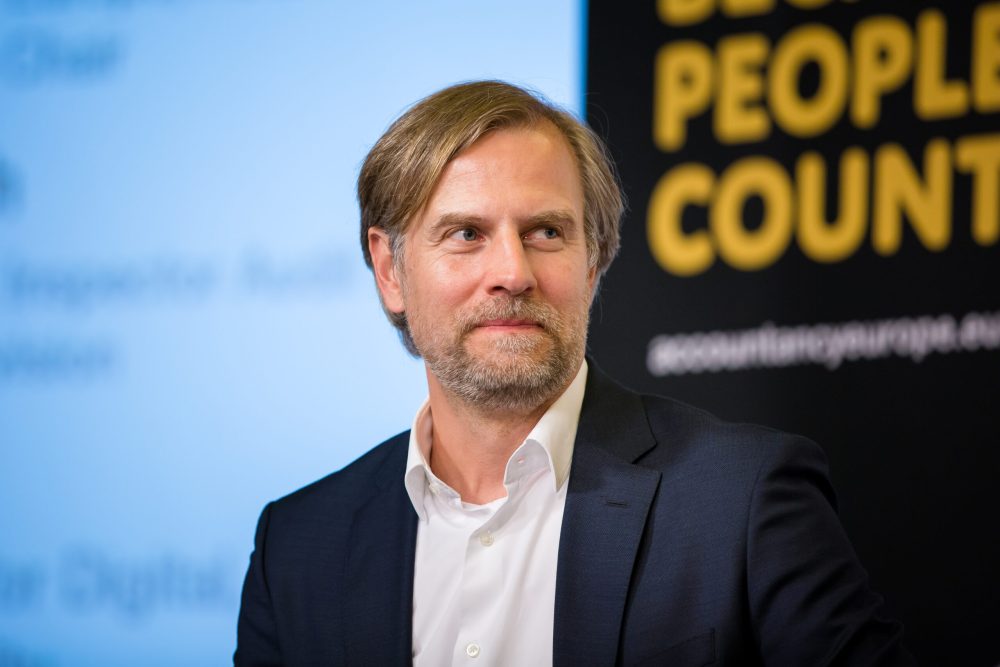
Embracing digitalisation will strengthen your business and grow your analytical skills. But it will also mean managing an ethical and regulatory maze, according to Olaf Riedel, IT Audit Partner at EY.
He has no doubt about the potential benefits on the horizon: “Do I see opportunities coming from digitalisation over the coming decade? Absolutely yes!”
Olaf cites Bitcoin and its current drawbacks to show a potential opportunity for the audit profession: “The number of bitcoins is limited, so it’s hard to create them. In parallel, a transaction takes a lot of time,” Bitcoin uses the blockchain to validate its transactions. Blockchain is a distributed ledger technology and, for a transaction to be validated, it needs to update in all of the ledgers across the network of Bitcoin users.
Well, Olaf explains that there could be another way to arrange blockchains: “Just imagine, if the blockchain was held by a number of companies rather than distributed over PCs that are connected to the internet. Then, someone would have to make sure the companies use the right means that establish mutual trust. Auditors can do this job, making sure that this network of companies works ethically and honestly with the blockchain.”
Olaf is convinced that such roles will be available for auditors, assuming of course they have developed the right skill sets, through newly-evolved university and post-professional courses:
He sees an issue to overcome for the accountancy and audit profession when it comes to attracting and retaining people with these ‘new’ skills: “Currently our firms are probably not the most attractive to professionals with these skills. Equally, if we as a profession are acquiring these new skills, how will we make sure we retain them
Capturing the benefits of digitalisation also means considering some challenging ethical and regulatory questions. “The ethical question is not simple to answer,” according to Olaf, “so we’ll likely still see a human taking the final decision for a number of years to come.”
“If you apply machine learning, then with every decision the machine learns something new. So, the machine can come to a different decision in the very same situation as last time,” even if from an ethical standpoint the correct decision is clear.
He concludes with a warning and a call to action: “I’m not sure that regulators will currently pave the way that we are going regarding new services. From a regulatory standpoint, the results that lead to a decision need to be reproducible. So, we need to find a way to reproduce the same results each time with machine learning.”